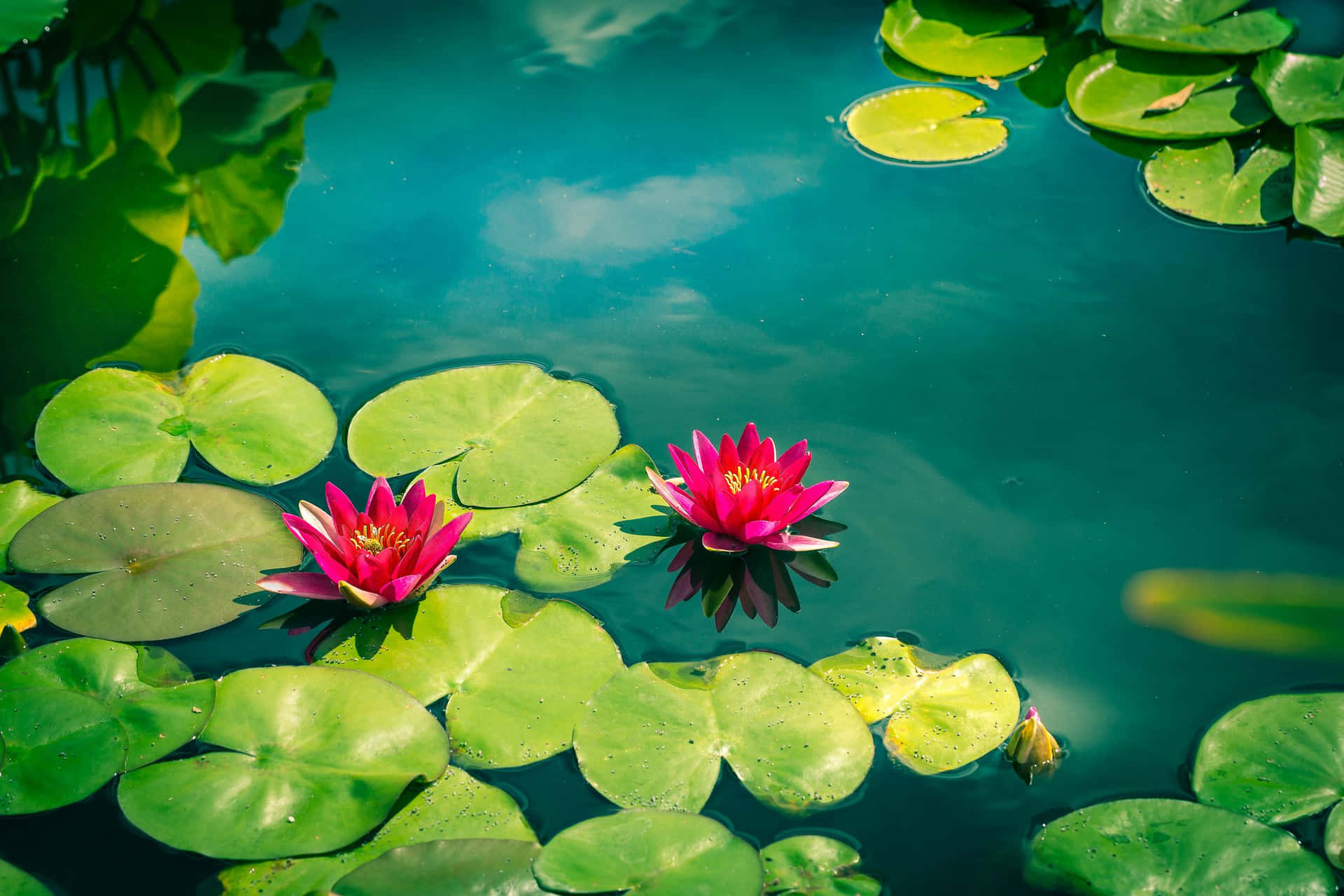
Ponds are enchanting and diverse ecosystems that can be found all over the world. These small bodies of water are home to a wide variety of plants and animals, making them fascinating habitats to explore. Whether you have stumbled upon a tranquil pond in a park or have your very own in your backyard, there is so much to learn and appreciate about these natural wonders.
In this article, we will delve into 13 interesting facts about ponds, shedding light on their importance, characteristics, and the creatures that call them home. From the formation of ponds to their role in supporting biodiversity, you’ll discover the wonders that lie beneath the calm surface of these captivating aquatic environments.
Key Takeaways:
- Ponds are dynamic ecosystems that support a wide range of plant and animal life, contributing to the overall health of the environment and offering a source of natural beauty and tranquility.
- Ponds play a vital role in the water cycle, serving as important breeding grounds for many species, and inspiring creativity and artistic expression through their serene and captivating presence.
Ponds are natural freshwater habitats that support a diverse range of wildlife.
Ponds serve as vital ecosystems, providing a home to various plants, insects, fish, and amphibians.
Ponds are temporary water bodies.
Ponds are typically formed by rainwater accumulation or melting snow, and they may dry up during periods of drought.
Ponds are vital for maintaining the water cycle.
They act as natural reservoirs, helping to store and filter water, replenishing groundwater sources.
Ponds support a rich array of plant life.
You’ll find lily pads, cattails, water lilies, and an assortment of aquatic plants flourishing in and around ponds.
Ponds are home to a variety of fascinating creatures.
From graceful frogs and entertaining turtles to darting dragonflies and colorful fish, ponds teem with life.
Ponds serve as important breeding grounds for many species.
Amphibians, such as frogs and salamanders, rely on ponds for mating and laying their eggs.
Ponds are hotspots for biodiversity.
The unique combination of habitats in and around ponds attracts a diverse range of species, making them biologically rich environments.
Ponds contribute to the overall health of the ecosystem.
They help purify water, provide habitats for beneficial insects that control pests, and offer food sources for predatory animals, contributing to a balanced ecosystem.
Ponds are a source of natural beauty and tranquility.
The serene atmosphere of a pond, with its calm waters, lush vegetation, and serene sounds, has a soothing effect on the mind and soul.
Ponds can be created artificially for various purposes.
Humans often construct ponds for irrigation, recreational purposes like fishing, and even as ornamental features in gardens.
Ponds are dynamic systems that undergo seasonal changes.
From the vibrant blooms of water lilies in summer to the frozen wonderland they become in winter, ponds transform throughout the year.
Ponds play a crucial role in supporting wetland ecosystems.
As small-scale wetlands, ponds contribute to global biodiversity and serve as stepping stones for migratory species.
Ponds are a source of inspiration for artists and writers.
The beauty and tranquility of ponds have long captivated the hearts and minds of individuals, inspiring creative works of art, literature, and poetry.
So there you have it – 13 fascinating facts about ponds! From their role in supporting biodiversity to the natural beauty and serenity they offer, ponds truly are extraordinary ecosystems. The next time you come across a pond, take a moment to appreciate the wonders of nature that lie within.
Conclusion
In conclusion, ponds are fascinating ecosystems that offer a glimpse into the wonders of nature. These serene bodies of water are home to a diverse array of plants and animals, each playing a vital role in the delicate balance of pond life. From the tranquil beauty they provide to the important ecological services they offer, ponds are truly a remarkable part of our natural world.
FAQs
1. What is a pond?
A pond is a small body of water that is shallow enough to allow sunlight to reach the bottom, supporting the growth of aquatic plants. Ponds can be natural or man-made.
2. How are ponds formed?
Ponds can form in various ways, such as through the melting of glaciers, the accumulation of rainwater, or as a result of beavers building dams.
3. What types of plants can be found in a pond?
Ponds are home to a wide range of plants, including lily pads, cattails, water lilies, and various types of algae and floating plants.
4. What animals live in ponds?
Ponds support a diverse array of animal life, including fish, turtles, frogs, ducks, dragonflies, and various species of insects.
5. Are ponds important for the environment?
Yes, ponds are crucial for the environment. They provide habitat for many species, help filter water, control erosion, and support the overall health of the ecosystem.
6. Can I have a pond in my backyard?
Yes, you can have a pond in your backyard. However, it is important to research and understand the proper maintenance and care required to ensure the pond’s sustainability.
7. How do ponds benefit humans?
Ponds offer recreational opportunities such as fishing and boating, provide a peaceful and aesthetically pleasing environment, and can help improve overall mental well-being.
8. Do ponds attract mosquitos?
Ponds can attract mosquitos, especially if there is stagnant water. However, introducing mosquito-eating fish or incorporating plants that deter mosquitos can help control their population.
Was this page helpful?
Our commitment to delivering trustworthy and engaging content is at the heart of what we do. Each fact on our site is contributed by real users like you, bringing a wealth of diverse insights and information. To ensure the highest standards of accuracy and reliability, our dedicated editors meticulously review each submission. This process guarantees that the facts we share are not only fascinating but also credible. Trust in our commitment to quality and authenticity as you explore and learn with us.
